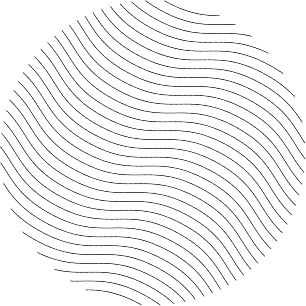Biography
Leopoldo Nachbin, Jewish Brazilian mathematician (Recife 07 January 1922 – Rio de Janeiro 03 April 1993)
Son of Polish father and Austrian mother
ACHIEVEMENTS
Published 110 papers
Performed pioneer works about holomorphy in infinite dimension
Realized the first systematic study of topological vector spaces (1948)
Presented required and sufficient conditions in order to a continuous functions space to be bornological
Defined certain weighted spaces and compact element in a lattice
Initiated the study of topological ordered spaces
Demonstrated that a distributive lattice displaying elements 0 and 1 where all prime filter is maximal is a Boolean algebra (1947)
Extended Stone-Weierstrass theorem to differentiable functions
With J.B. Prolla & S. Machado proved that the polynomials of finite type from a real locally convex space into another are dense in the space of all continuous function with the compact open topology
Established conditions for a continuous functions subspace of compact basis be located under a subalgebra of continuous functions algebra
Nachbin theorem
An extension of the notion of integral functions of the finite exponential type. Anais Acad. Bras. Ciencias 16:143-7, 1944.
Obtained the concept of semi-uniform structures.
Sur les espaces topologiques ordonnés. C.R. Acad. Sci. Paris 226:381-2, 1948.
Introduced concept of compactness
On a characterization of the lattice of all ideals in a Bollean ring. Fund. Mathematicae 36:137-142, 1949.
Proved that every non-discrete valuable topological division ring is strictly minimal
On strictly minimal topological division rings. Bull. Amer. Math. Soc. 55:1128-36, 1949.
Nachbin-Goodner-Kelley theorem
A theorem of the Hahn-Banach type for linear transformations. Trans. Amer.Math. Soc. 68:28-46, 1950.
Hewitt-Nachbin spaces
On the continuity of positive linear transformations. Proc. Intern. Congress of Math. Cambridge, Mass. 1950. Vol I, Amer. Math. Soc, Providence, R.I., 464-5, 1952.
Nachbin-Shirota theorem
Topological Vector Spaces of Continuous Functions. Proceed. National Acad. Sciences 40:471-2, 1954.
Formulated a conjecture about Weierstrass approximation theorem
Formulação geral do teorema de aproximação de Weierstrass para funções diferenciáveis, Tópicos de topologia, Expos. De Mat 3, Univ. Ceará, Fortaleza, Ceará, 1961.
Bernstein-Nachbin approximation
Weighted approximation over topological spaces and the Bernstein problem over finite dimensional vector spaces. Topology 3, Suppl. 1:125-30, 1964.
Introduced topology Tau omega
On the topology of the space of all holomorphic functions on a given open subset, Indag. Math. 29:366-8, 1967.
Introduced Topology Tau epsilon
Sur les espaces vetorels topologiques d’applications continues. C.R. Acad. Sci. Paris 271:596-8, 1970.
Authored the thesis Topologia e Ordem (in English Topology and Order) in 1950, later translated to English and edited by Van Nostrand from Princeton in 1965. This book displayed new concepts such as a completely regularly ordered space and first to explicity define the notion of a pospace
Authored The Haar Integral (1965), worldwide used in mathematical courses
INTRODUCED
Notion of fundamental weight
Concept of quase-uniform space
Ideal completion of a sup-semilattice
Notion of holomorphy type
Holomorphic Mackey spaces ((with J.A. Barroso & M.C. Matos)
Concept of uniform holomorphy
Concept of weighted spaces of continuous real-valued functions
Concept of locally weighted convex spaces of continuous scalar functions on a topological space
Concept of localizability in weighted approximation problem
HONORS
Houssay Prize from OAS (1982)
George Eastman Professor of Mathematics, University of Rochester (1967) created for him
First Brazilian Mathematician invited to give conference at International Congress of Mathematicians in Stockholm (1962)
EPONYMY
Nachbin uniform structure
Nachbin lemma
Nachbin family
Nachbin topology
Nachbin compactification
Nachbin property
Urysohn-Nachbin extension and separation theorems
Nachbin cones
Nachbin ported topologies
Nachbin m-algebras
Nachbin polynomial
LINKS
WWW.mu.sbm.org.br/Conteudo/n16/n16_Artigo02.pdf (in Portuguese)


